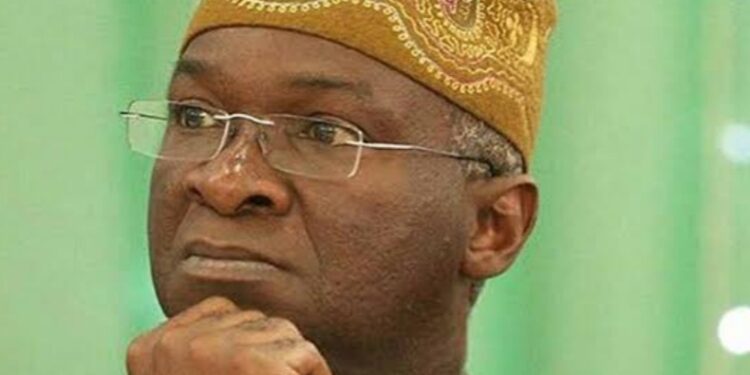Defamation can simply be said to mean the act of injuring another person’s reputation by any slanderous communication, written (libel) or words (slander). Defamation is said to have taken place when the statement is false and is likely to lower the defamed person’s reputation in the eyes of reasonable people, and in particular cause people to have feelings of hatred, contempt, fear or dislike for the defamed.
I thoroughly explained the principles of defamation in one of my previous articles. Someone had tweeted something defamatory about Innoson Vehicles, and I talked extensively on how the law was against defamation, and how anyone can take a civil action against anyone or body that defames them. You might have to read up that article for a better understanding on how defamation works.
When the news about Babatunde Raji Fashola SAN writing judgment at his Abuja residence hit twitter, I knew a defamatory suit was incoming. I mean, a false publication/information that was detrimental to the former minister’s name was out in the open. What I should say that I did not see coming was a criminal action. Obviously, I did not at that time avert my mind to the criminal aspects of such publication. The following laws have sections that criminalize defamation in Nigeria: Cybercrime (Prohibition, Prevention, Etc) Act 2015, the Criminal Code Act, Libel Act, Penal Code.
Section 375 of the Criminal Code Act provides:
“Any person who publishes any defamatory matter is guilty of a misdemeanor and is liable to imprisonment for one year”
Also, section 24(1)(b) of the Cybercrime (Prohibition, Prevention, Etc) Act 2015 provides thus:
“Any person who knowingly or intentionally sends a message or other matter by means of computer systems or network that- he knows to be false, for the purpose of causing annoyance, inconvenience danger, obstruction, insult, injury, criminal intimidation, enmity, hatred, ill will or needless anxiety to another or causes such a message to be sent commits an offence under this Act and shall be liable on conviction to a fine of not more than N7,000,000 or imprisonment for a term of not more than 3 years or to both such fine and imprisonment”
This means that anyone who believes that he/she has been defamed can institute a civil action for defamation, where they can claim damages against the defamer, and can also go ahead to write a petition to the police for investigation to be carried out. The police upon its investigation can then arrest and charge for the offence.
This explains how the police got involved. In fact, I am sure you clearly remember the tiktoker that was convicted for defamatory publication against Eniola Badmus. So many people have actually been arrested, arraigned, trialed and convicted for this offence. Most recently, a lawyer. A blogsite, “The Nigerian Lawyer” had on the 18th day of August, 2023 reported that a Magistrate court in Abuja had handed down a six-month jail sentence to a lawyer for publishing a defamatory advertisement he published against Dangote Cement Plc in the Nations Newspaper on November 6th 2015. The publication didn’t say whether the option of fine was given to the lawyer.
So, you see that no one is left out.
Note: it is not only the original publisher that is liable. Anyone who spreads the same information is also liable. So, yes, be careful what news or information you spread, not just for the fear of a civil action against you, but also, for the very fact that that action of yours is also criminal.



A candid article in a vulnerable time when citizens are putting unverified statements on social media and in print press to justify their feelings towards the Government. Timely reminder. Kudos.
Thank you, Moses.
Very informative. Especially in the area of sharing and distributing unverified information.
Thank you,
IPraise